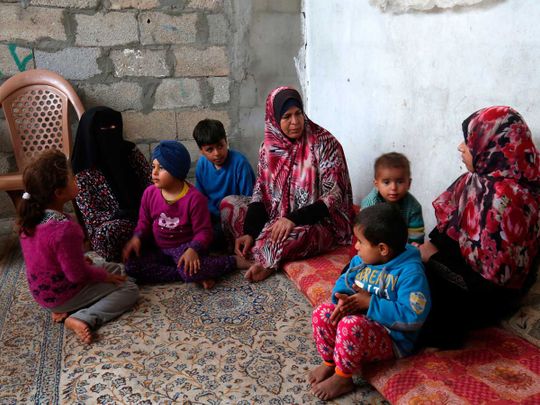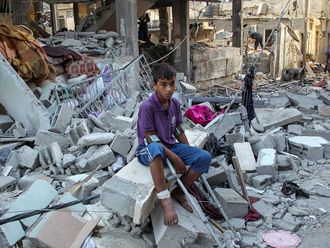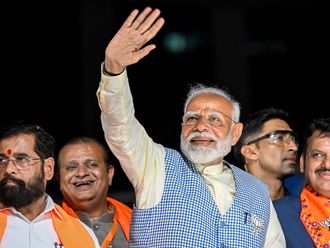
While many around the globe observed ‘World Refugee Day’, Palestinian refugees find themselves a target of a major Israeli-American political and financial campaign aimed at denying them their Right of Return.
Washington has redefined the refugee status for millions of Palestinians, with the result that their internationally-enshrined rights are marginalised as an insignificant issue.
With Jerusalem supposedly being taken “off the table” following US President Donald Trump’s own decision to move his country’s embassy to Jerusalem, his son-in-law, Jared Kushner, is keen on downgrading the core issue of refugees.
But Kushner, like many before him, will fail.
Palestinian refugees, who have withstood the degradation of exile for more than 70 years, embody the harshness of this collective experience more than any other group. To date, they remain the largest refugee population in the world.
When Israel and its friends argue that the Palestinians are an “invented people”, not only are they aiming to annihilate the Palestinian collective identity, but they are also justifying, in their own minds, the continued killing and maiming of Palestinians, unhindered by any moral or ethical consideration.
According to the United Nations High Commissioner for Refugees (UNHCR), there are currently 68.5 million people around the world who have been forced from their homes, with 25.4 million of them classified as refugees. Of the officially listed refugees, 5.4 million are Palestinians registered with the UN Relief and Works Agency (UNRWA).
For Palestinians, the grim reality of being a refugee is compounded through the absence of any political respite, enough to convey a sense of hope that, 70 years after the genesis of the Palestinian refugee crisis, a remedy is at hand.
Abandoned in this seemingly eternal quest for a homeland, Palestinians hold tighter onto hope, the only thing that feeds their own sense of determination to finally achieve their Right of Return. This internationally-honoured right is etched in the hearts and minds of millions of Palestinians everywhere.
While Palestinians continue to maintain their sense of a collective identity in their various spaces of exile, their prolonged odyssey is often seen as a ‘problem’ to be indiscriminately ‘fixed’ or entirely dismissed.
The mere fact that the Palestinian people live and multiply is a “demographic threat” to Israel, a “demographic bomb”, even. This unmistakably racist notion is embraced entirely by Israel and its allies.
When Israel and its friends argue that the Palestinians are an “invented people”, not only are they aiming to annihilate the Palestinian collective identity, but they are also justifying, in their own minds, the continued killing and maiming of Palestinians, unhindered by any moral or ethical consideration.
Nearly a million Palestinian were made refugees following the establishment of Israel on the ruins of historic Palestine in 1948. Hundreds of thousands more acquired that dismal status in subsequent years, especially during the Israeli war and occupation of East Jerusalem, the West Bank and Gaza in 1967.
Israel has never agreed to take responsibility for the consequences of its violent inception — the ethnic cleansing, the destruction of towns and villages and the very erasure of historic Palestine.
Even during the Oslo Peace Process, Israel refused to discuss the core issue of refugees, relegating the discussion to the ‘final status negotiations’ that have never taken place and will, most likely, never materialise.
In the meantime, Palestinian refugees have been sentenced to subsist in this discriminatory status — neither here nor there.
Moreover, millions of Palestinian refugees have been exiled more than once, from Palestine to Jordan or Lebanon; from there to Syria, and back and forth.
The US invasion of Iraq in 2003 and the current war in Syria have taught us that Palestinian refugees with relatively better living conditions are not safe either.
The small Palestinian refugee community in Iraq was persecuted after the invasion, to the point that they were forced to leave en masse, to any country willing to take them. Many of them ended up as refugees in South America.
The same repugnant scenario was repeated in Syria and will, tragically, be replayed elsewhere in the future.
Israel has targeted refugee communities through wars and massacres, most notably during the 1982 war and invasion of Lebanon, and the subsequent Sabra and Shatila Massacre in September of that same year.
By denying UNRWA urgently needed funds, efforts are being made to enforce a new reality in which neither human rights, nor international law or morality are of any consequence.
The Palestinian people will never accept such injustice.
All the money in Washington’s coffers will not reverse what is now a deeply embedded belief in the hearts and minds of millions of refugees throughout Palestine, the Middle East and the world.
The Right of Return remains a driving force behind Palestinian resistance.
Palestinian refugees may not top the political agenda of the Middle East at the moment, but it is their persistence, determination and undying hope that will keep their cause alive until international law is respected and human rights truly honoured.
Ramzy Baroud is a journalist, author and editor of Palestine Chronicle. His latest book is The Last Earth: A Palestinian Story (Pluto Press, 2018).








